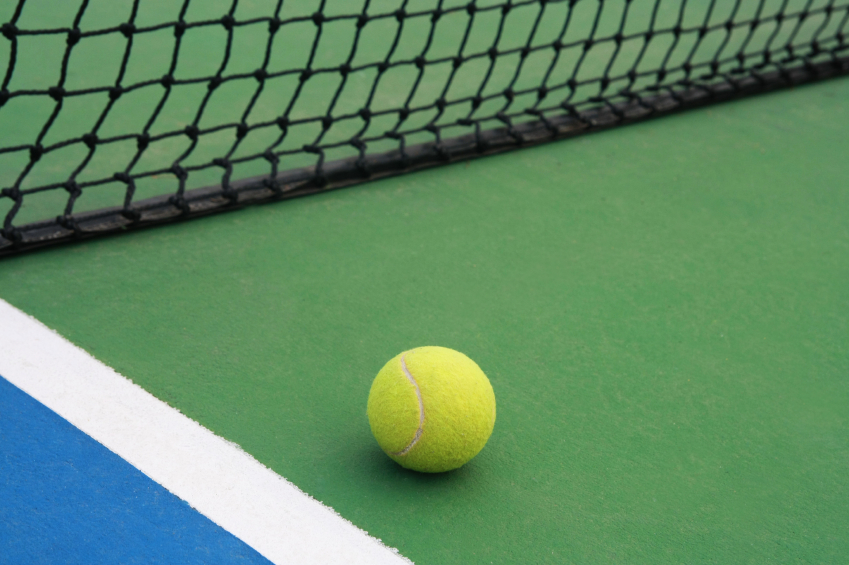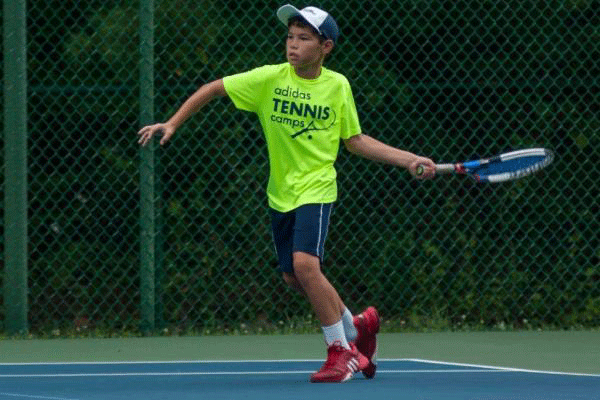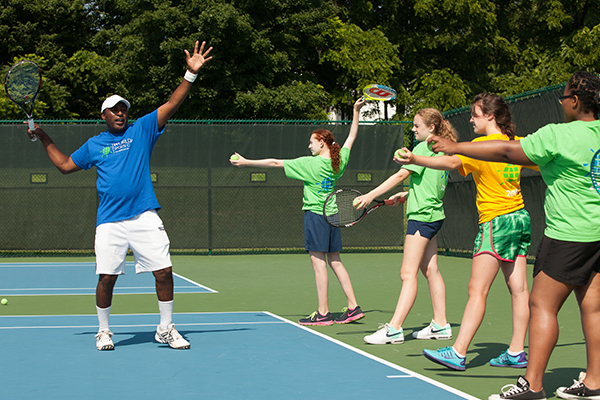Things Coaches Say To Help Players Reach Their Potential

There are many people in life who can impart valuable wisdom and guidance. From parents, to teachers, to friends, nearly everyone can offer knowledge to others in some capacity. However for athletes, one of the most valuable sources of information and mentorship is undoubtedly a coach. Coaches often draw from their wealth of experience in a given sport to help athletes hone their skills on the field.
Given that a coach is in the unique position of being much more knowledgeable concerning the “bigger picture” of success in sports, their advice can sometimes be hard to understand. However, most coaches have a very good reason for the things that they say. While some of the advice can seem a bit confusing or puzzling, most coaches repeat common lines because they are very meaningful.
Tennis camps are great for helping players of beginner, intermediate, and even advanced levels improve their skills. Qualified coaches are not hard to find at these camps, and tennis players of all ages can benefit from a tennis coach’s sound advice. Whether young or old, players who attend tennis camps should be prepared to benefit from the advice of coaches.
It may seem that sometimes coaches have a few things they like to say constantly. However there are a number of positive messages coaches convey through these lessons. Though they may be phrased in different ways, the sentiments are the same. Here are a few things that coaches like to say to their players.
“Don’t Quit”
It may seem that long days at camp are a grueling part of a proper tennis routine. Harder days and more difficult drills can often cause players to become exhausted and frustrated. While it is easy to walk off the field and give up for the day, any good coach knows that this is not beneficial to the player. While even the best players can feel the need to cut a bad practice short, the best coaches will encourage players not to quit.
Coaches at tennis camps work adamantly to motivate players and to give them the confidence to keep performing and training even if they aren’t feeling 100%. Smart coaches know that one of the best lessons an athlete can learn is that they have the ability to push through adversity. A good coach loves to remind players that they are skilled and equipped physically and mentally to continue their training even on days when things seem tough.
“It Will Pay Off Later”
Sometimes certain drills, practice regimens, and exercises can seem like “busy work” at tennis camp. Players may be confused by certain portions of their training and may not see how these things will improve their tennis game. This is especially true for more unorthodox drills and unique aspects of training. Any good coach will always be sure to tell players that these things are designed to pay off in the long term.
Coaches have a vast amount of experience and are good at seeing the “bigger picture” when it comes to training and preparing at tennis camps. These camps have regular training schedules, but coaches often times implement their own unique changes in order to help players develop their skills. While some of these changes may seem hard, smart coaches are sure to let players know that these things will pay off in the future.
Giving players skills they need later through preemptive drills and exercises is a smart strategy, and coaches often use this to help players prepare for higher level matches and competition. It can sometimes be confusing for players, but a good coach will ensure players that they are being taught skills that will be valuable both in the short term and long term.
“You Can Do Better”
Every good coach wants to help their players reach their full potential. Bringing out the best in players is a unique task, and tennis camps are equipped with high-quality coaches who know the way to handle such a job. One of the best ways to help players improve their performance is to let them know that they have the potential to do so already and simply need to “dig deep” and improve their game.
A good coach looks to motivate players by example and to help players reach new levels of skill and proficiency. Most coaches can see good habits in players and can tell when players have the tools necessary to teach higher levels of play. When coaches at tennis camps see players performing below their potential, they like to remind them that they have the potential to do much better.
While some players may be frustrated with being corrected or told to improve, coaches phrase the statement in this way to encourage players to look deep within themselves to show off skills they already have the potential to demonstrate. By encouraging players to perform to a higher level through instilling in them the idea that they are better, tennis coaches can help athletes to show vast improvement.
“Good Job”
Of course there is no better way to encourage athlete to improve then by giving them credit after a good performance or game. Any smart coach knows that rewarding players and helping them feel accomplished is a sure way to help them show repeat performances in the future. Whether a detailed analysis of the good points of a players performance or a simple compliment, positive reinforcement is a tool utilized by most coaches.
Many coaches will also create contests, offer prizes, and utilize other creative tools to incentive players to do their best. Many tennis camps offer specialized rewards for players who excel. Special recognition for above average achievement can promote a higher standard of gameplay that coaches seek in athletes.
Athletes who have positive relationships with their coach often look for encouragement and approval. At tennis camp, coaches are looking for players who demonstrate a solid skillset and work ethic and are quick to credit those who do. Letting athletes know when they’re doing well is as important as correcting them when they falter.



